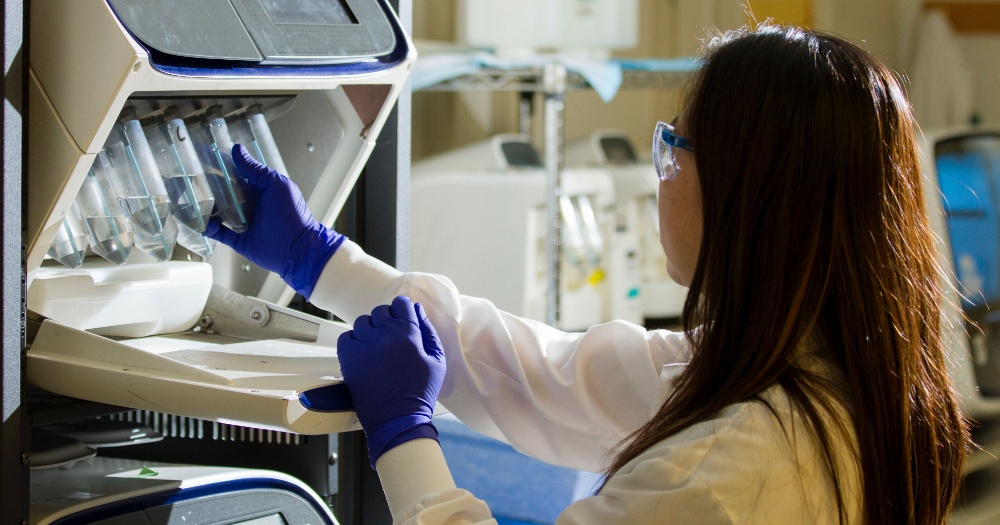Scientists in Singapore are working alongside international partners to develop a trial for a vaccine against the novel coronavirus (nCoV).
According to The Straits Times (ST), there are plans to begin testing the trial "in as soon as four months."
Duke-NUS Medical School working together with CEPI to implement vaccine trial
On Feb. 10, Tan Chorh Chuan, the Ministry of Health's (MOH) chief health scientist, said in a press conference that Duke-NUS Medical School is working together with the Coalition for Epidemic Preparedness Innovations (CEPI) to implement a vaccine trial in Singapore.
He also mentioned that time is needed for the development of the vaccine, as well as to test if it is safe and suitable for use on patients.
The trial will see the vaccine being given to a group of healthy volunteers, who will then be observed and reviewed for any side effects, as well as for any effects the vaccine has on their immune system.
It usually takes years to come up with any kind of vaccine, as a prolonged process whereby animal testing and clinical trials on humans are required, alongside regulatory approvals.
19 patients with coronavirus recruited into prospective study
During the press conference, NCID's executive director Leo Yee Sin said that 19 patients with the coronavirus have been recruited into a study to "better understand the virus and identify who would be most at risk."
In the study, biological samples such as blood, urine and stool are collected from patients for analysis, according to ST.
These samples will be juxtaposed against each patient's clinical development as their conditions progress, and their immune systems will be monitored for any changes at the same time.
Hopefully, the results may provide additional insights for researchers.
Developed in 2012, this prospective study aims to "detect new pathogens and characterise their clinical features, as well as determine their transmission risk, and how they interact with their hosts, among other things."
Internationally, scientists are in a race to find a cure against the virus, which has killed over 1,000 people and infected more than 40,000 in China alone.
At least a year to wait
According to CNA, Hsu Li Yang, programme leader of Infectious Diseases at the NUS Saw Swee Hock School, said that it would take “at least a year” before a vaccine is commercially available.
However, Wang Linfa, the director of Duke-NUS' Programme in Emerging Infectious Diseases, also mentioned that CEPI has prepared several processes and production methods that can be "plugged in" the event a new virus appears.
Wang added that if "the virus remains the way it is, with minimal change among the cases seen in different countries, the vaccine may be able to offer long-term protection," CNA reported.
At the same time, researchers are also currently developing anti-viral drugs to benefit patients in the near future.
NCID working to repurpose currently available drugs for severely ill patients
In the press conference, Tan stated that the National Centre for Infectious Diseases (NCID) is working together with different parties to repurpose drugs that are currently available for severely ill patients.
Repurposed drugs are those that have worked on animal models, but which also have a safety profile which allows them to be tested on humans.
According to ST, tests on the efficacy of such drugs in fighting the coronavirus have been conducted in China, while Thailand's health ministry also reported that coronavirus patients who were given these drugs had "promising initial results".
NCID has been in talks with international experts such as those from the World Health Organisation (WHO) to come up with a randomised controlled trial protocol.
A trial in Singapore could allow patients here to benefit from the latest discoveries and treatments.
Other anti-viral drugs administered to patients in hopes of discovering cure
While these efforts are ongoing, other anti-viral drugs such as lopinavir and ritonavir, which have been used to treat HIV, are being administered to patients.
However, because anti-HIV drugs are not specifically designed to treat the coronavirus, patients have to agree to its use and potential side effects.
In some patients, a "rapid response" is seen, but others continue to worsen. Its use as a "magic drug" for the coronavirus remains to be seen.
So far, there have been 45 confirmed cases of the coronavirus in Singapore, with seven discharged patients and seven patients who are currently in critical condition.
https://www.instagram.com/p/B8aYRL9nPiB/
Top image via National Cancer Institute on Unsplash
If you like what you read, follow us on Facebook, Instagram, Twitter and Telegram to get the latest updates.
